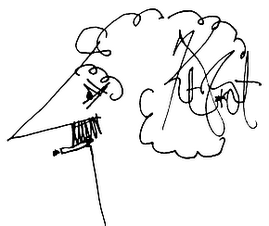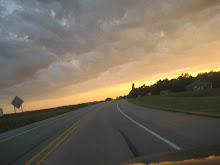Moderator: Good interview with a wonderful writer. Love Susan's work. Hank Nuwer
Q&A with Susan Neville, Author and Demia Butler Professor of English
Posted: April 5, 2009
* Post a Comment
* Recommend
* E-mail
* Print
* Share
o del.icio.us Del.icio.us
o Digg Digg
o Reddit Reddit
o Yahoo Yahoo
o Google Google
*
A
A
Susan Neville's third-floor office in Butler University's Jordan Hall is usually littered with a dizzying array of novels. But on a recent Wednesday morning, a few of the authors represented there had something in common. From the T.C. Boyle tomes to the paperbacks of Jane Hamilton, all were authors who have visited Indianapolis this year, thanks to Butler University's Visiting Writers Series.
The program, which is celebrating its 20th anniversary, was founded by Neville, who has taught the written word at Butler for 25 years.
Advertisement
Neville remembers bringing the first two writers, Kevin McIlvoy and Mary Fell, to speak at the school in 1986 before the series officially began, using $500 left over within the English Department. Soon thereafter, Vivian S. Delbrook provided an anonymous endowment of $50,000 for the program. Three years ago, Delbrook gave an additional $1 million gift, and the series was named in her honor.
Since then, Neville's brainchild -- an annual, free, open-to-the-public series of discussions with great writers -- has grown into a highly anticipated event, drawing such illustrious names as Ray Bradbury, John Updike, Toni Morrison, Allen Ginsberg and Salman Rushdie.
What are you reading now?
I re-read Iris Murdoch about once every five years. And so I just finished re-reading "A Fairly Honourable Defeat." I want to read the new Mary Robison book that just came out. I'm always reading whatever I need for class. . . . I just finished T.C. Boyle's "Tooth and Claw." I'm getting ready to read Jane Hamilton's new book.
You won the Indiana State Library's 2008 Best Book of Indiana Award for "Sailing the Inland Sea." Can you tell me about the title of the book and what it was like to receive that honor?
The book itself is about Indiana, particularly Indiana writers. Oddly enough, one of the lines in the introduction is, "I hope that some of the writers I have written about that have been forgotten will be remembered, and that the book itself will have a place on a library shelf somewhere," and one of the things about that award is that the winners are in the State Library in the Indiana Writers Collection. So . . . that was the perfect one for that award. But the central metaphor of the book is sailing the inland sea through the imagination.
You see yourself as a "keeper of the flame" when it comes to Indiana's cultural history. Do you think it's in need of protection?
I think that cultural history is always in need of protection. . . . I think of myself not as the keeper but as a keeper, as every historian or literary critic is. I have spent a lot of time reading Indiana literature, Indiana history, talking to people in small towns, so a lot of the essays in "Sailing the Inland Sea" are about writers who aren't often mentioned.
You said recently that the literary arts are often thought of last when it comes to arts funding?
I do think that, when you think about what the city funds. We have a large arts museum, theater, music, and often times it seems like the literary arts are a stepchild. . . . I don't begrudge a penny spent on the arts, but one of the things I think we all felt with the series is that it was really important for Indianapolis to have access to the best and brightest, and for that to be free, for writers to come here and for people to go and hear Salman Rushdie or see Kurt Vonnegut or ask Allen Ginsberg a question.
Advertisement
One of your goals of the series was to make this seem like a place that writers could feel they could stay and live in and write about. Have you had any luck on that front?
I think this was from being a writer in my 20s living in Indianapolis and thinking if I were living in New York or California that I would get to go to readings and talk to writers and have that literary life. So one of the goals was to make it possible for writers who were from here not to have to leave . . . The other part of that goal is that writers who come through here will become interested. I mean . . . to be aware that this is a place where people are writing, and that the place will appear in (their) work. Vonnegut, in "Timequake," writes a lot from his experience having visited Butler. Lawrence Ferlinghetti wrote a poem about Indianapolis while he was here.
What do you hope for the series' next 20 years?
We're going to be doing things with new media people and graphic artists, graphic novelists, so we can keep up with what's happening. But at the same time, we want to get writers into classrooms and keep the series free. We keep wonderful archives, and I hope that 20 years from now somebody can look at the writers we have in the next two decades and say, "That's a really important and interesting interview."
Monday, April 6, 2009
Subscribe to:
Comments (Atom)

